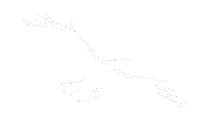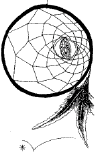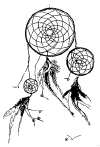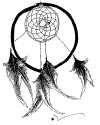CHAPTER XVIII.
GRAND EXPEDITION OF THE DAKOTAS TO THE SOURCES OF THE MISSISSIPPI, AGAINST
THE OJIBWAYS.
The Dakotas make a grand tribal effort to drive back the
Ojibways--Their warriors collect at St. Anthony Falls--They ascend the
Mississippi in canoes--They make the circuit of the Upper Mississippi
country--Death of the Ojibway hunter, Waub-u-dow--Death of Minaigwatig with
his family at Gauss Lake--Death of three boys at Little Boy Lake--Death of
an Ojibway hunter near the Falls of Pokeguma--The Dakotas are discovered by
two Ojibway hunters--Chase down the Mississippi--Arrival at Sandy
Lake-Drunken carouse of the Ojibways--Death of the Ojibway scout--Dakotas
capture thirty women while picking berries--They attack the village of Sandy
Lake--They are repulsed and proceed down the river--An Ojibway war party
discover their marks, and lie in ambuscade at Crow Wing--Preparations for
battle--Three days' fight--Dakotas finally retreat and evacuate Rum River
County--Dakota legend.After having given, in the
two preceding chapters, a summary account respecting the affairs of the
Ojibways, attendant on the change from the French to the British supremacy,
we will once more return to the northwestern vanguard of the tribe, under
the chief Bi-aus-wah, whom we left battling with the fierce Dakotas for the
possession of the Upper Mississippi country.
As near as can be judged from their mode of computing
time. by events, and generations, it is now1 about eighty five years [1768]
since the following events occurred, to that portion of the tribe who had
located their village at Sandy Lake, and hunted about the Sources of the
Great River. The incidents to be related resulted in a fierce battle between
the warriors of the two contending tribes, at the confluence of the Crow
Wing River with the Mississippi.A. D. 1852.
The most reliable account of this occurrence which the
writer has been enabled to obtain, is that given by Esh-ke-bug-e-coshe, he
venerable and respected chief of the northern Ojibways. He is one whose
veracity cannot be impeached. He is between seventy and eighty years of age,
and the tale having been transmitted to him by his grandfather
Waus-e-ko-gub-ig (Bright Forehead), who acted as leader of the Ojibway
warriors who fought in this action, his account can be implicitly relied on.
"The M'dé-wak-anton Dakotas, being at last obliged, from
the repeated incursions of the Ojibways, to evacuate their grand villages at
Mille Lacs and Knife Lake, now located themselves on Rum River. Smarting
under the loss of their ancient village sites, and their best hunting
grounds and rice lakes, they determined to make one more united and national
effort to stem the advance of their troublesome and persevering enemies, and
drive them back to the shores of Lake Superior.
Having for some years past been enjoying an active
communion with the French traders, they had become supplied with fire-arms,
and in this respect they now stood on the same footing with the Ojibways,
who had long had the advantage over them, of having been first reached by
the whites.
War parties formed at the different villages of the
Dakotas, and met by appointment at the Falls of St. Anthony, where the
ceremonies preceding the march of Indian warriors into an enemy's country
being performed, the party, consisting of from four to five hundred men,
embarked in their canoes, and proceeding up the Mississippi, reached,
without meeting an enemy, the confluence of the Crow Wing River with the
"Father of Rivers."
It was but a short time previous that they had possessed
and occupied the country lying on and about the head-waters of the
Mississippi, and being thus perfectly familiar with the route and portages
from lake to lake, and the usual summer haunts of the Indian hunter, they
determined to make the grand circuit by Gull, Leech, Cass, and Winnepegosish
Lakes, and descending the Mississippi from its head, pick up the stray
hunters and rice-gatherers of their enemy, and attack the village of the
western Ojibways at Sandy Lake. Carrying this plan of their campaign into
execution, the Dakotas ascended the Crow Wing and Gull Rivers into Gull
Lake, from the northern extremity of which they made their first portage.
Carrying their canoes about two miles, they again embarked on Lake Sibley;
making another portage, they passed into White Fish, or Ud-e-kum-ag Lake,
and through a series of lakes into Wab-ud-ow Lake, where they spilt the
first Ojibway blood, killing a hunter named Wab-ud-ow (White Gore), from
which circumstance the lake is named to this day by the Ojibways. From this
place they passed into Gauss Lake, where again they massacred an unfortunate
hunter with his wife and children. The tale of this transaction is briefly
as follows:--
An Ojibway named Min-ah-ig-want-ig (Drinking Wood), was traveling about in
his birch bark canoe, with his family, making his summer hunt. One evening,
after dark, he arrived at Gauss Lake, where seeing a long line of fires
lighting the shore, and supposing it to be the encampment of a war party of
Rainy Lake Ojibways on their way to the Dakota country, he silently but
confidently approached the shore to camp with them. On hearing, however, the
language of their enemies spoken, he discovered his mistake, and quickly
backing out, he entered the mouth of a little creek, and pushing his canoe
into a clump of tall grass, or rushes, he and his family passed the night in
the canoe, within plain hearing of the loud talking and singing of their
enemies.
Towards morning the foolish hunter, placing his paddle
upright behind his back to rest upon, fell asleep. On the first appearance
of day, the Dakotas embarked, and one of their canoes passing close to the
shore, noticed with an Indian's wariness and sagacity, the mark of a canoe
through the grass and weeds at the entry of the little creek. One of the
Dakotas arose in his canoe, and seeing the end of the upright paddle
sticking up above the tall grass in the creek, he quietly informed his
fellows, and the Ojibway, being surrounded, was surprised in his sleep-- he
and his family killed and scalped, with the exception of one child taken
captive.
Much elated, the Dakota war party proceeded on their way,
and at Little Boy, or Que-wis-aus Lake, they again attacked and killed three
little boys, while engaged in gathering wild rice. Their parents, hearing
the noise of the firing incident to the attack, made their escape. From this
circumstance, this large and beautiful sheet of water has derived its
Ojibway name of Que-wis-aus (Little Boy).
The Dakotas passed into Leech Lake, and crossing over by a
short portage into Cass Lake, they commenced their descent of the
Mississippi. A short distance above the Falls of Puk-a-gum-ah, they again
destroyed an Ojibway hunter and his family. On the banks of the river where
this occurrence took place, the Dakotas made marks on the pine trees, which
are still discernible to the eye of the traveler. The Ojibways call it
Mun-zin-auk-wi-e-gun (tree picture marks).
Some distance below the Falls of Puk-a-gum-ah, they were
met and discovered by two Ojibway hunters, in a birch canoe, who turned and
fled down the river, warning their fellows as they went. The Dakotas made a
warm pursuit, as they wished to attack the village of their enemies at Sandy
Lake by surprise. The fleeing hunters, by making short portages acrosslong
bends of the river, left their pursuers some distance, and arrived at the
Sandy Lake Village during the night, but found a number of the bravest
warriors gone on a war party down the Mississippi, and the remainder of the
men of their village drinking "fire-water," which had been brought by a
number of their fellows, who had just returned from their periodical summer
visit to Sault Ste. Marie and Mackinaw. The alarm was given, and the
drinking stopped, though many of the older men were already hors du combat
through the effects of the liquor. Such as were able, prepared for defense.
One of the young hunters who had arrived to warn the
village, having dropped a small looking glass, while crossing a short
portage, which is sometimes made from the Mississippi into Sandy Lake, and
it being in those days an article rare and much valued among them, he
returned early in the morning to look for it. He went alone in his light
birch canoe, but found the portage covered with the Dakotas who had been
pursuing them. Some were crossing in their canoes, while the main body was
making their way on foot to attack the Ojibway village by land. On being
discovered, a hot pursuit in canoes was made after the young hunter by the
Dakotas, and being single in his canoe, they fast gained on him. Making
straight for an island which lies directly in front of the village, the
young man landed, pulled his canoe across the island, and again embarking,
paddled away for life. By this maneuver he gained a little on his pursuers,
who were obliged to round the point of an island in their heavier canoes.
The Dakotas, however, being full manned, caught up with and dispatched the
fleeing hunter before he reached the main shore, and in full sight of the
Ojibway village.
In the mean time, the party who were approaching to attack
the village by land discovered a party of Ojibway women, who were picking
huckleberries, whom they surrounded and easily captured. These female
captives, most of whom were young and unmarried, numbered thirty.
go to chapter 19
1
- 2
- 3
- 4
- 5
- 6
- 7
- 8
- 9
- 10
11
- 12
- 13
- 14
- 15
- 16
- 17
- 18
- 19
- 20
21
- 22
- 23
- 24
- 25 - 26 - 27 - 28 - 29 - 30
White Eagle Soaring: Dream Dancer of the 7th Fire






 Get
a course to promote your business online, explode your sales
Get
a course to promote your business online, explode your sales Get
software to promote your business online in less time
Get
software to promote your business online in less time Get
software to streamline your business and run it hands free.
Get
software to streamline your business and run it hands free.